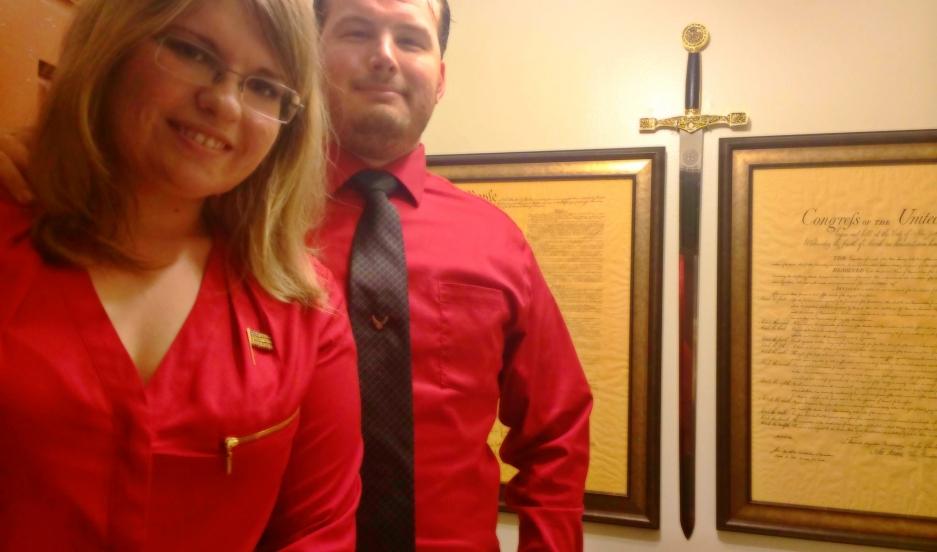One family, two sides: Debating the new US policy on Cuba over dinner
Arianna Mendez and Chris Alvarez in the entryway of Alvarez's home. The couple don't always agree on the US' policy toward Cuba.
The US-Cuba thaw hasn't divided only public opinion — it's also creating debates of a far more personal nature
Take 31-year-old Chris Alvarez and 22-year-old Ariana Mendez. They’re a young couple in Miami with two very different perspectives on the Obama administration's recently-announced plan to normalize relations with Cuba.
“I kind of have a looser stance on it than most Cuban refugees,” Alvarez says. He doesn’t want to rush to end the embargo, but he thinks it’s time to start working with Cuba again. As an Iraq war veteran who has the Declaration of Independence, the Constitution and the Bill of Rights proudly hung in his home, he thinks this might be an opportunity to expose the Cuban people to American ideas about liberty.
Mendez disagrees. “I think that the embargo should stay,” she says. “That is something that needs to be there. [It's] more than symbolic, it serves a purpose.”
Her opinion has been shaped in part by the stories of her parents’ generation, refugees who still vividly recall their last, bittersweet memories of Cuba. While Chris' grandmother recalls her flight out of Cuba and the moment the pilot announced they had reached international airspace, Mendez's family has darker memories.
Her grandfather was part of the Batista regime, which ruled pre-communist Cuba. After the revolution, he was targeted for persecution, but fled to the US along with Mendez's grandmother. Her mom, Andrea, had to stay behind. She never saw her mother again.
"Your mom’s dying, and some guy says you can’t leave the country just because you don’t think like him,” Mendez says. “That becomes part of your identity. … It’s part of what makes you tick.”
But she’s trying to keep an open mind. She and Alvarez laugh when asked if they’ve ever truly fought about the issue. The answer: only once.
“The first initial conversation was a bit more heated,” she admits. “But we tend to respect each other’s opinions, and our discourse is very civil.”
Part of what makes that civility possible is the couple's freedom, and not just from the Castro regime: These younger Cubans are distanced enough from the island’s history that they can take a broader view of the future than previous generations of exiles.
